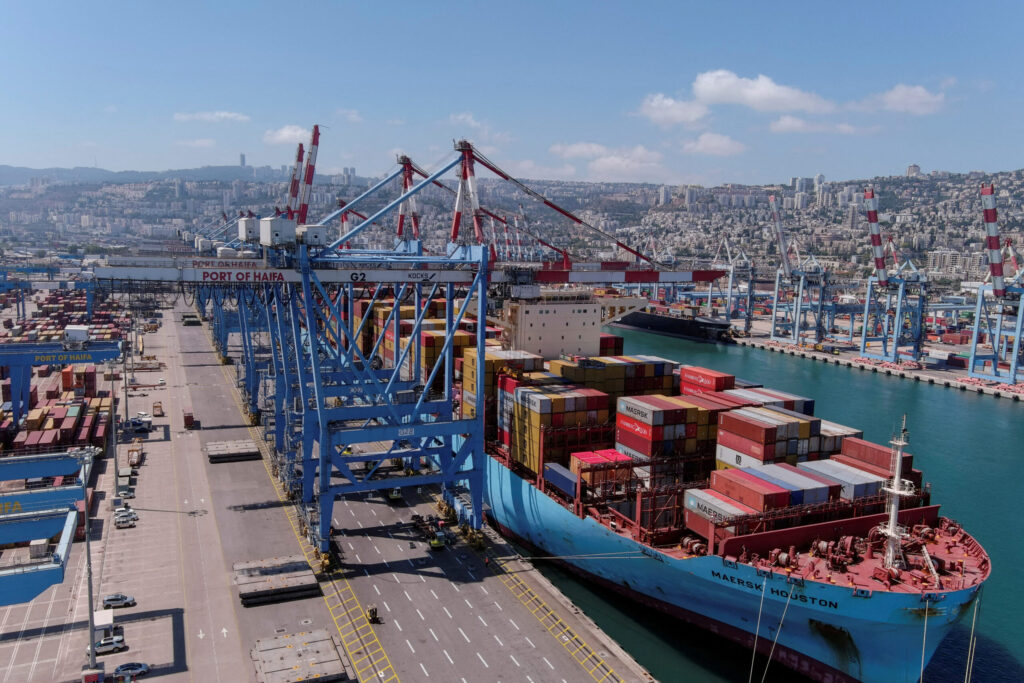Maersk, the global shipping powerhouse, has resumed import cargo acceptance at Israel’s Port of Haifa, marking a cautious but significant step toward commercial recovery in a region under intense geopolitical scrutiny.
🛳️ 1. Haifa Back in Business
-
On June 25, 2025, Maersk confirmed the reopening of import cargo services to Haifa after a brief suspension triggered by missile attacks from Iran.
-
The shipping giant paused operations on June 20, citing escalating security risks to its vessels and crew.
-
Export services remain on hold; a cautious return depends on continuing safety assessments and confirmation of lower risk .
🧭 2. Regional Context: Ceasefire & Security Signals
-
The reopening follows a 12-day Israel–Iran confrontation, which ended in a ceasefire after intense missile strikes .
-
The security situation remains fragile, and Maersk emphasizes ongoing monitoring.
🔐 3. Maersk’s Adaptable Strategy
-
Maersk operates with flexible contingency planning, actively evaluating vessel safety and route adjustments. Service in Ashdod remains uninterrupted, demonstrating stability in alternate Israeli ports.
-
The Strait of Hormuz continues to be navigable, with Maersk maintaining traffic there while staying alert to shifting security threats.

📉 4. Cargo & Freight Rate Fallout
-
Initial port suspensions triggered a 55% surge in Middle East freight rates, pressuring global supply chains.
-
Rising war risk insurance premiums, vessel rerouting, and congestion at alternative hubs compound the cost dilemma.
-
Analysts warn that protracted instability could further disrupt logistics from Shanghai to Jebel Ali.
🌎 5. Global Ripples
-
Haifa handles approximately 90% of Israel’s international trade, making its operational status crucial to imports and exports.
-
Continued service in Ashdod offers temporary relief, but major delays or further suspensions could strain local and global supply chains.
-
Sustained disruptions may prompt shippers to use air cargo or overland routes, increasing transportation costs across industries.
📅 7. What Comes Next
-
Export restart timing – Maersk will resume Haifa export operations once safety is confirmed.
-
Freight costs & insurance premiums – Monitor war-risk and freight rate changes linked to regional stability.
-
Competitor actions – Watch how Hapag-Lloyd, MSC, and CMA CGM respond to Maersk’s move.
-
Supply chain impacts – Analyze port volumes and global transit delays as conditions evolve.
📝 TL;DR
-
Import cargo service at Haifa resumed on June 25 after a security-triggered pause.
-
Export services remain suspended, pending further risk assessment.
-
Maersk relies on real-time intelligence and adaptive strategies across key routes.
-
Shipping costs in the Middle East surged up to 55% following earlier disruptions.
-
Continued vigilance is vital to maintain resilience amid unpredictable geopolitics.
- stusupplychain.com+4freightwaves.com+4maersk.com+4




